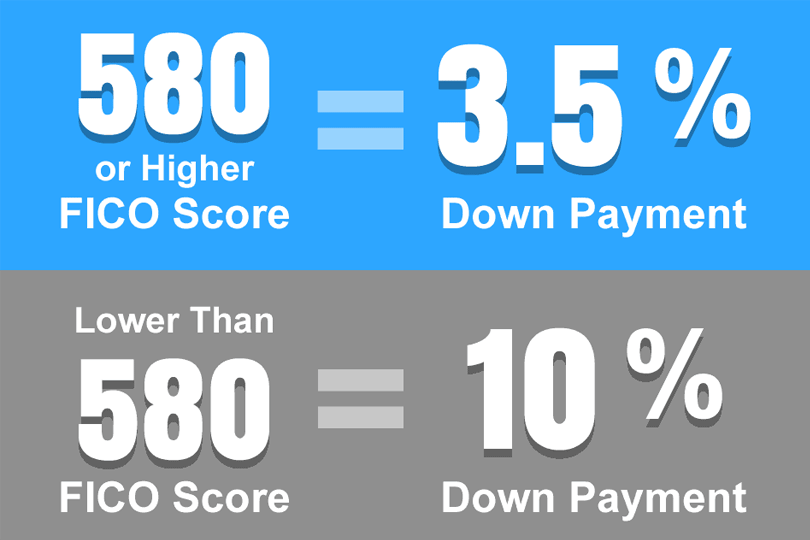Getting To Yes With an FHA Mortgage
April 22, 2025
How can I improve my debt-to-income ratios before applying for an FHA loan?
A lower debt ratio means the lender has an easier time approving your loan application. Working on your debt-to-income (DTI) ratios involves increasing or decreasing your income.
To increase your income, consider your opportunities for a raise at your current job. You could also look for a higher-paying position. A part-time job could supplement your income if you have additional skills or time.
Ensure that any new income sources are stable and can be documented.
Focus on paying down high-interest debts. Create a budget. It can help you cut expenses. Do not take new debt before or during the mortgage application process.
What other factors might lenders consider during the FHA loan approval process?
While credit score, income, employment history, and the property are primary considerations, lenders may also evaluate other factors during the FHA loan approval process.
- If down payment funds are coming from a third party, be prepared to provide documentation such as bank statements, gift letters, etc.
- Having savings or investment accounts can demonstrate financial stability. It is not a requirement for loan approval, but it helps.
- Lenders review financial stability, including your spending habits and ability to manage your finances responsibly.
- It is crucial to be honest and transparent throughout the loan application process.
- Providing false or misleading information typically leads to denying your loan application. Falsifying loan forms can have legal implications.
To maintain a smooth loan application process and avoid potential pitfalls, there are several things you should refrain from doing. For starters, don't open new credit accounts.
Avoid large purchases on existing credit cards or taking out new loans during the loan application process.
Be mindful of your employment needs for loan approval. If a job change is unavoidable, inform your lender immediately, as it may require additional documentation and potentially affect your loan approval.
Do not change from salary to contract, to freelance, or to commission while your loan application is in progress. Wait til after closing day.
Changes in your bank account balances can raise red flags for lenders. Be prepared to document the source of any large deposits. Do not co-sign or co-borrow with others until you have closed your home loan.
How can pre-approval help improve my chances of getting an FHA loan?
Obtaining pre-approval for an FHA loan can improve your chances of buying a home. Pre-approval involves a lender reviewing your financial information, including your credit history, income, and assets, to determine the maximum loan amount you could be approved for.
Are there any specific requirements for property purchased with an FHA loan?
Yes, properties financed with FHA loans must meet specific minimum property standards to ensure they are safe, sound, and secure. These standards protect both the borrower and the FHA's investment.
A licensed FHA appraiser will conduct an appraisal to find conditions that could affect the property's safety, structural integrity, or habitability. This includes leaky roofs, faulty plumbing or electrical systems, pest infestations, and structural problems.
If the appraisal identifies any required repairs, these must be completed before the FHA approves the loan. It is wise to conduct a thorough home inspection in addition to the FHA appraisal to identify any potential issues the appraiser might not specifically address. Addressing any known property issues before making an offer can streamline the loan process.
What is mortgage insurance, and how does it affect an FHA loan?
There are two types. FHA Upfront Mortgage Insurance Premiums or UFMIPs, are a one-time fee paid at closing or can be rolled into the loan amount.
The FHA Annual Mortgage Insurance Premium, or MIP, is an ongoing monthly premium as part of your mortgage payment. The amount of your annual MIP will depend on factors including the loan amount, loan term, and loan-to-value ratio. For many FHA loans originated today, the annual MIP is required for the life of the loan.

FHA Loan Articles
December 17, 2024The Federal Housing Administration provides mortgage insurance on loans made by FHA-approved lenders, making homeownership more attainable for those who might not qualify for conventional loans.
While financial factors like credit score and debt-to-income ratio are key to loan approval, other non-financial aspects can also cause a denial.
December 11, 2024FHA loans, insured by the Federal Housing Administration, are a popular choice for many homebuyers, especially those who need a lower downpayment or more forgiving credit qualifying requirements. FHA loans are primarily intended for primary residences—homes that borrowers will occupy as their main dwelling.
December 10, 2024The FHA announced increased loan limits for 2025, providing those seeking FHA-insured mortgages after January 1st with increased purchasing power. In this article, we explore the key aspects of these limits and their implications for your homeownership goals.
When you are approved for an FHA-insured loan, the FHA guarantees a portion of the loan to the lender, lowering lender risk...
December 9, 2024The Federal Housing Administration (FHA) helps people buy homes, especially those buying for the first time or who might not have perfect credit. In 2025, there is good news for FHA borrowers. FHA home loan limits are going up.
In most places, the FHA loan limit for a single-family home in 2025 is $524,225. This is more than it was in 2024. However, in expensive areas, where houses cost more, the limit can be as high as $1,209,750.
December 5, 2024The Federal Housing Administration (FHA) has some ground rules regarding cash-out refinances. These rules are designed to protect both you and the lender, ensuring you have enough ownership of your home and reducing the risk of foreclosure. How long must you own your home before you can apply for FHA cash-out refinancing?







